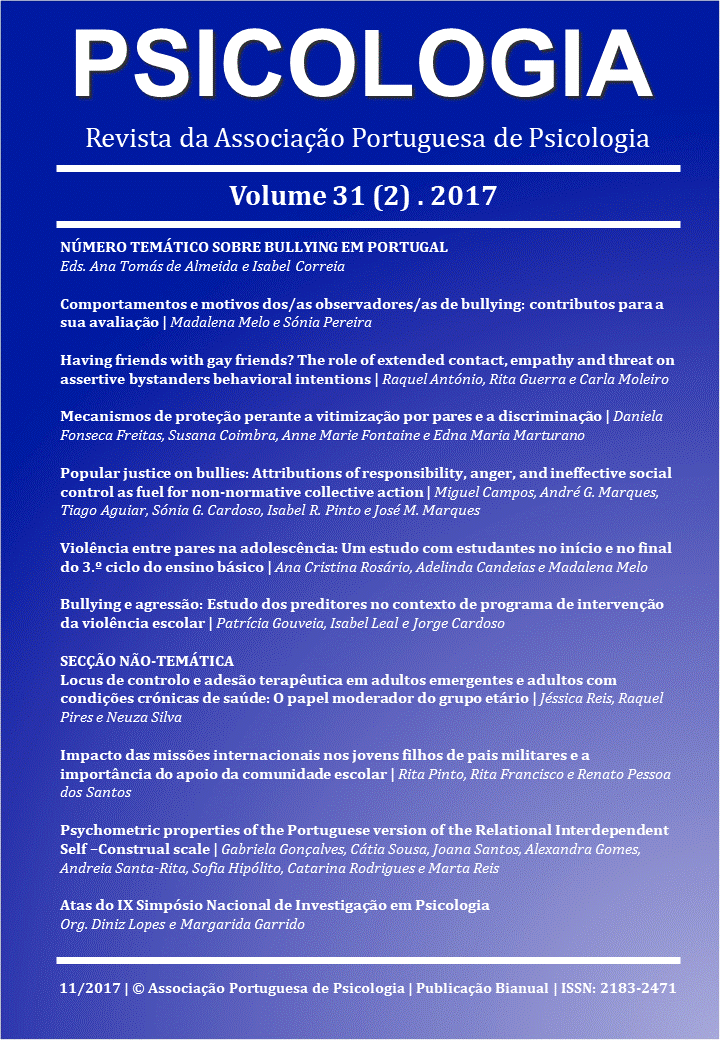Popular justice on bullies: Attributions of responsibility, anger, and ineffective social control as fuel for non-normative collective action
DOI:
https://doi.org/10.17575/rpsicol.v31i2.1144Abstract
School bullying has seldom been analyzed through the perspective of society in general. However, severe collective reactions often emerge towards bullies when they attract public attention. In this paper, we analyze the process underlying these non-normative forms of collective action triggered by bullying. A survey was presented to 350 Portuguese participants following the release of a viral video depicting a bullying situation. Results showed that assignment of responsibility to the aggressor predicted agreement with popular justice, which was mediated by anger and moderated by perceived ineffectiveness of social control. Specifically, greater responsibility attributed to aggressors yielded greater anger towards them, which, in turn, triggered more agreement with popular justice. Moreover, this effect was stronger for participants who believed that formal social control mechanisms were ineffective. We discuss these results in light of their contribution for tackling bullying, as well as for the literature on deviance, social control and collective action.Downloads
Download data is not yet available.
Downloads
Published
2017-11-21
How to Cite
Campos, M., Marques, A. G., Aguiar, T., Cardoso, S. G., Pinto, I. R., & Marques, J. M. (2017). Popular justice on bullies: Attributions of responsibility, anger, and ineffective social control as fuel for non-normative collective action. PSICOLOGIA, 31(2), 47–56. https://doi.org/10.17575/rpsicol.v31i2.1144
Issue
Section
Thematic issue


